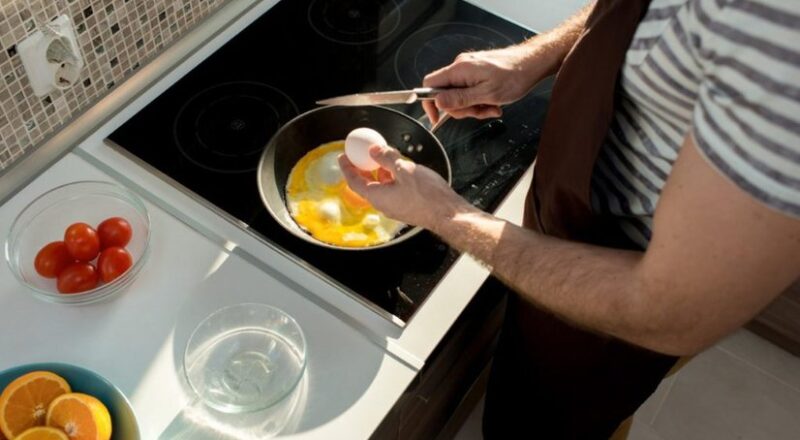When it comes to choosing the right cookware, many people find themselves torn between cast iron vs hard anodized cookware. Both types offer unique benefits and have their own set of characteristics that appeal to different cooking styles and preferences. In this article, we will explore the features, advantages, and disadvantages of each type of cookware to help you make an informed decision.

Understanding Cast Iron Cookware
What is Cast Iron?
Cast iron cookware is made by pouring molten iron into molds. This process creates a dense and durable material that is perfect for cooking. Cast iron has been around for centuries and is known for its excellent heat retention and even cooking.
Benefits of Cast Iron Cookware
One of the main advantages of cast iron is its ability to retain heat. This makes it ideal for slow cooking and frying. Cast iron is also incredibly durable and can last a lifetime if properly cared for. Additionally, it can be used on a variety of cooking surfaces, including induction cooktops. Learn more about using enameled cast iron on induction.
Drawbacks of Cast Iron Cookware
Despite its many benefits, cast iron does have some drawbacks. It is heavy, which can make it difficult to handle for some people. Additionally, it requires regular seasoning to maintain its non-stick properties and prevent rusting. If you’re unsure how to maintain your cast iron, check out this guide on cast iron seasoning after induction use.
Exploring Hard Anodized Cookware
What is Hard Anodized Cookware?
Hard anodized cookware is made from aluminum that has been electrochemically hardened to create a durable and non-reactive surface. This process makes the cookware resistant to scratches and corrosion, and it provides a non-stick cooking surface.
Benefits of Hard Anodized Cookware
Hard anodized cookware is lightweight and easy to handle, making it a popular choice for many cooks. Its non-stick surface means you can cook with less oil, which is great for health-conscious individuals. Additionally, it’s easy to clean and maintain, which adds to its convenience.
Drawbacks of Hard Anodized Cookware
One downside of hard anodized cookware is that it can be more expensive than other types of cookware. Furthermore, it is not always compatible with induction cooktops. If you are considering making pizza, you might want to consider making pizza on cast iron with induction instead.
Comparing Cast Iron and Hard Anodized Cookware
Heat Retention and Distribution
Cast iron is known for its superior heat retention, which makes it ideal for dishes that require slow cooking. Hard anodized cookware, on the other hand, heats up quickly and evenly but does not retain heat as well as cast iron.
Durability
Both cast iron and hard anodized cookware are incredibly durable, but cast iron can last a lifetime with proper care. Hard anodized cookware is resistant to scratches and corrosion but may not last as long as cast iron.
Maintenance
Cast iron requires regular seasoning to maintain its non-stick properties, while hard anodized cookware is relatively low-maintenance and easy to clean.
Cooking Surface Compatibility
Cast iron can be used on a variety of surfaces, including induction cooktops. For more information, visit this external resource. Hard anodized cookware is not always compatible with induction cooktops.
Making the Right Choice for Your Kitchen
When choosing between cast iron vs hard anodized cookware, consider your cooking style, budget, and the type of cooktop you use. If you value heat retention and durability, cast iron might be the right choice for you. However, if you prefer lightweight cookware that is easy to maintain, hard anodized might be more suitable.

FAQs
1. Can I use cast iron on a glass cooktop?
Yes, you can use cast iron on a glass cooktop, but be sure to handle it carefully to avoid scratching the surface. Read more about avoiding scratches with cast iron.
2. Is hard anodized cookware safe?
Yes, hard anodized cookware is safe to use. The anodizing process creates a non-reactive surface that prevents aluminum from leaching into food.
3. How do I maintain the seasoning on my cast iron pan?
To maintain the seasoning on your cast iron pan, make sure to clean it properly and apply a thin layer of oil after each use.
This article contains affiliate links. We may earn a commission at no extra cost to you.

